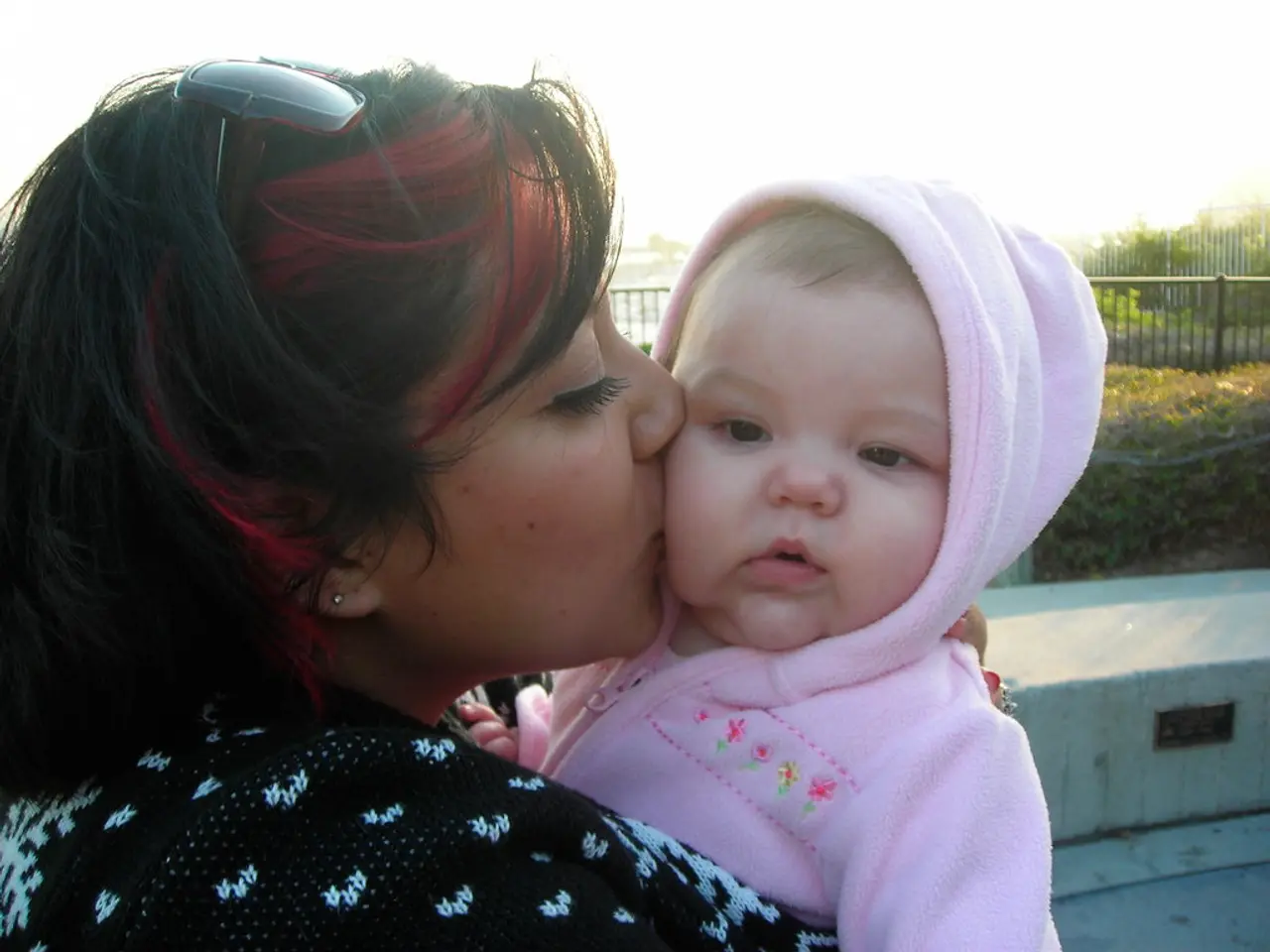Strategies for Effective and Peaceful Child Discipline
Gentle parenting, a child-rearing philosophy that emphasizes empathy, respect, and positive communication, is gaining popularity among parents worldwide. This approach, which fosters a close relationship between parents and children while setting clear boundaries, offers immense benefits for both parents and children.
At the heart of gentle parenting is the belief that children need a guide who sets limits, not a friend who blurrs the lines. This approach encourages parents to build self-esteem, emotional intelligence, and resilience in their children, while fostering a meaningful connection.
One of the key techniques in gentle parenting is redirecting behavior instead of punishing. This focus on what the child can do, rather than what they cannot, helps children understand the expectations and consequences of their actions. The "time-in" approach, for instance, replaces the traditional "time-out," bringing the child close to help them regulate their emotions.
Gentle parenting also replaces fear-based obedience with respect-driven cooperation, encouraging children to make responsible choices. Defiance often arises when children feel powerless, and gentle parenting encourages parents to understand the root cause. By addressing the underlying issue, repeated misbehavior can be reduced.
With teenagers, a different approach is required. Open communication, respect for their growing autonomy, and guiding them without judgment are essential. Active listening can change the approach, helping teenagers feel understood and reducing instances of misbehavior driven by frustration or feeling unheard.
Every parent faces overwhelming moments. When gentle parenting feels hard, it's important to take a step back and breathe. Remember, mistakes are part of the process. Self-care is essential for maintaining the emotional energy required for gentle parenting.
Connection reduces misbehavior in children, with daily moments of connection helping children feel safe and secure. Creating an environment that promotes positive behavior involves minimizing triggers for misbehavior and providing opportunities for independent play and learning.
Navigating public meltdowns with calm strategies is important in gentle parenting, focusing on responding to the child's needs, not the expectations of onlookers. Offering choices and involving children in decision-making can reduce power struggles by giving them a sense of control and autonomy.
The effects of gentle parenting reach far into adulthood, with children raised with gentle discipline tending to develop healthier relationships, stronger communication skills, and higher levels of empathy. Sibling conflicts offer an opportunity to teach empathy and conflict resolution. With school-age children, gentle discipline includes fostering independence while maintaining connection.
For toddlers, gentle discipline is about establishing a nurturing foundation. Modeling respectful interactions with others, such as saying "please" and "thank you," teaches children these values far more effectively than simply instructing them.
Certain phrases can greatly enhance cooperation, such as "I need your help with this," or "Let's work on this together." Mindfulness practices, such as breathing exercises and grounding techniques, can be highly effective in maintaining calm in stressful situations.
Sharing experiences, challenges, and victories with other gentle parents can be both comforting and educational. Many families have seen dramatic changes after adopting gentle discipline, from reduced tantrums to stronger bonds, transforming family dynamics by replacing stress and conflict with understanding and cooperation.
Inconsistency can undermine gentle discipline. If boundaries shift based on a parent's mood or convenience, children may become confused about what behavior is acceptable. Children are keen observers and learn emotional regulation by watching how their parents handle stress and conflict, with staying calm helping set a positive example.
Tantrums in gentle parenting are not viewed as misbehavior but as a sign that the child needs help. Activities to strengthen the parent-child bond include shared hobbies, bedtime stories, family meals, and even a few minutes of one-on-one play each day. By encouraging open conversations about feelings, gentle parenting helps children become more attuned to their emotions and those of others, promoting emotional intelligence.
Gentle discipline aims to teach, not to punish, helping children understand the consequences of their actions. Empathy is the cornerstone of gentle parenting, with building trust and a sense of security as its main goals. The effects of gentle parenting extend far beyond childhood. By raising children with empathy, respect, and connection, parents lay the groundwork for emotionally intelligent, compassionate adults.
[1] Goldstein, L. (2019). The Conscious Parent: Transforming Ourselves, Empowering Our Children. Harmony Books.
[2] Panksepp, J., & Biven, L. (2012). Affective Neuroscience: The Foundations of Human and Animal Emotions. Oxford University Press.
[3] Siegel, D. J., & Bryson, T. P. (2012). The Whole-Brain Child: 12 Revolutionary Strategies to Nurture Your Child's Developing Mind. Random House.
[4] Sheff, S. (2015). Learning the Language of Emotions: How Understanding Emotional Intelligence Can Help in Parenting and in Life. New Harbinger Publications.
- In gentle parenting, children need a guide who sets boundaries, not a friend who blurs the lines, fostering self-esteem, emotional intelligence, and resilience.
- Redirecting behavior instead of punishing is a key technique in gentle parenting, helping children understand expectations and consequences of their actions.
- Gentle parenting replaces fear-based obedience with respect-driven cooperation, encouraging children to make responsible choices.
- With teenagers, open communication, respect for their growing autonomy, and guiding them without judgment are essential in gentle parenting.
- Connection reduces misbehavior in children, with daily moments of connection helping children feel safe and secure.
- Inconsistency can undermine gentle discipline, with children observing parents' emotional regulation and learning from how they handle stress and conflict.




